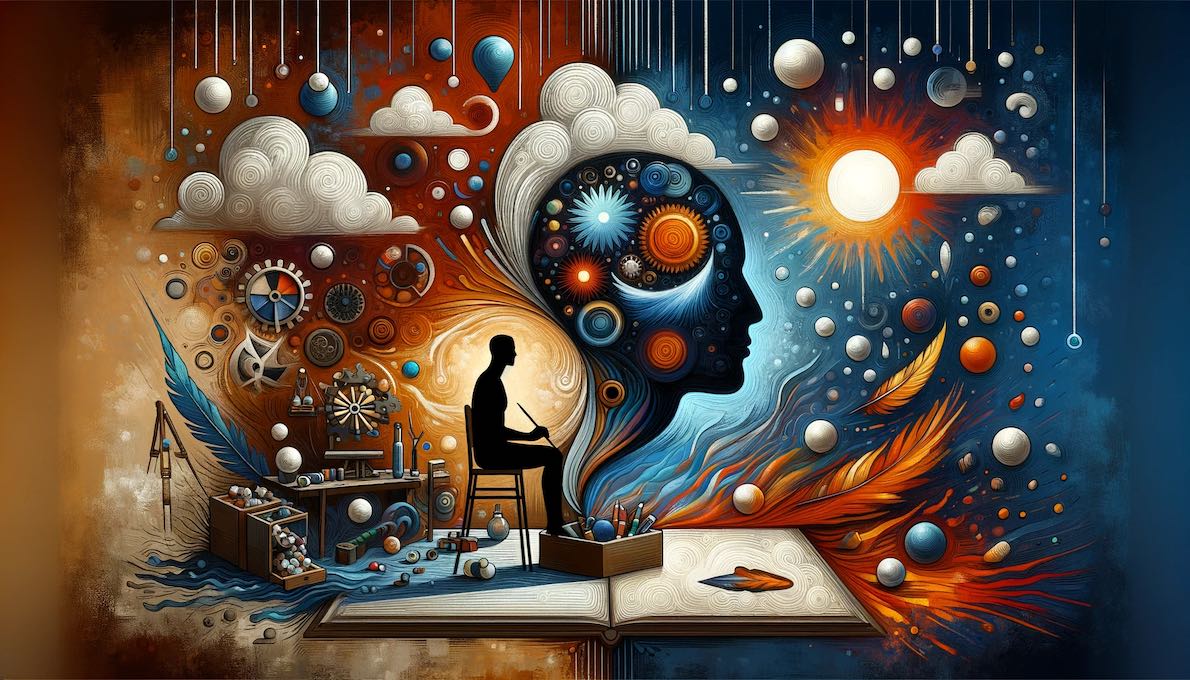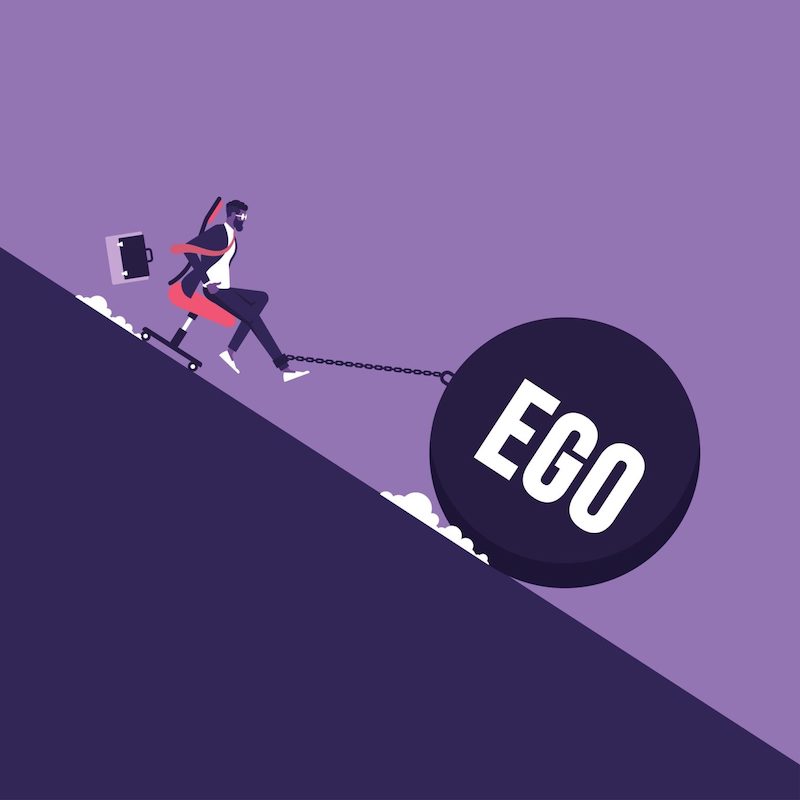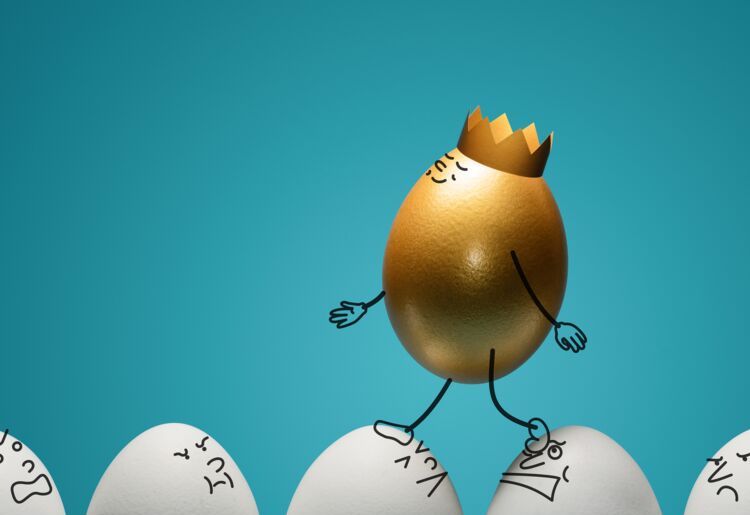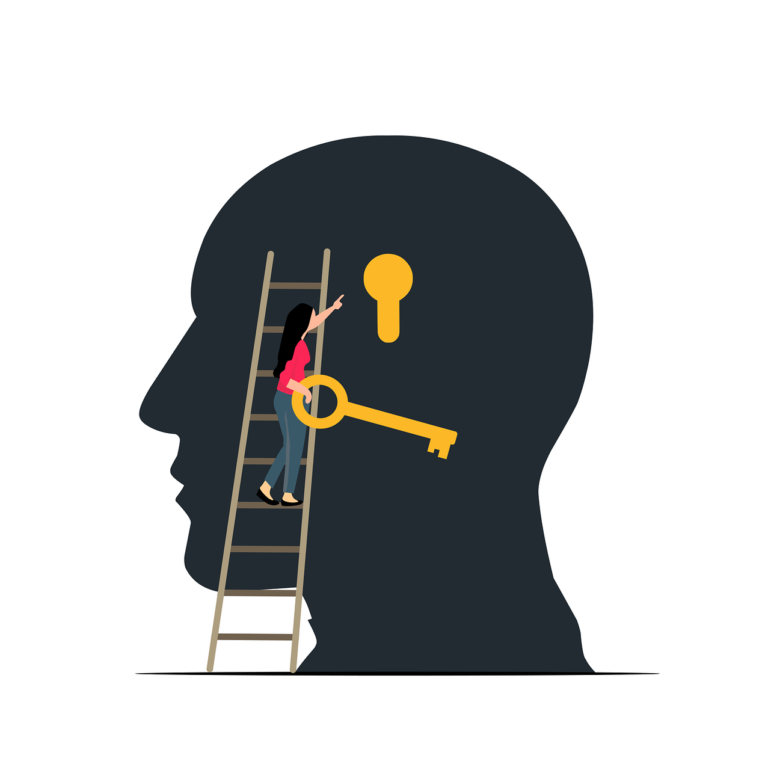How to Handle Ego as an Artist: Understanding the Consequences, Advantages, and Disadvantages

Finding balance between confidence and humility is essential for artistic growth and success.
As an artist, you’ve likely experienced moments when your confidence soared after receiving praise, or perhaps times when criticism made you question your abilities entirely. These emotional highs and lows often stem from the same source: your ego.
The artistic journey is uniquely intertwined with ego – that sense of self-importance that can either propel you to creative heights or trap you in a cycle of insecurity and arrogance. But how do you strike the right balance? When does healthy self-belief become detrimental self-absorption?
“The ego is not master in its own house.” — Sigmund Freud
In this article, we’ll explore the complex relationship between artists and their egos, examine the advantages and disadvantages of ego in creative work, and provide practical strategies for managing your ego effectively throughout your artistic career.
Quick Navigation
Understanding Ego in the Artistic Context
The ego is a psychological concept referring to your sense of self-identity and self-importance. For artists, ego manifests in unique ways that directly influence the creative process and artistic development.
When researchers examined the relationship between creativity and ego, they found that artists often develop complex relationships with their sense of self. This is partly because art is inherently personal—a direct expression of your inner world exposed to public judgment.
As Grace Dow eloquently puts it: “Artists need egos. We need to think we’re special. We need to believe in ourselves when no one else does because how else are we ever going to survive the rejections, the criticisms, and the deafening silence that often greets our work?”
The Healthy Ego
- Provides necessary self-confidence
- Fuels persistence through rejection
- Motivates continued creative exploration
- Enables you to value your unique perspective
- Gives courage to share vulnerable work
The Unhealthy Ego
- Creates resistance to constructive feedback
- Promotes creative stagnation
- Leads to overvaluing recognition above growth
- Damages professional relationships
- Causes emotional instability when criticized
The Advantages of a Healthy Ego

A well-managed ego can be a powerful asset in your artistic toolkit. The right balance of self-assurance without arrogance can fuel creative breakthroughs and career advancement.
Resilience in the Face of Rejection
A healthy ego creates a psychological buffer that helps you weather the inevitable rejections and criticism that come with putting your work into the world. Research from creative psychology shows that artists with balanced self-confidence can separate constructive criticism from their core self-worth, allowing them to learn without being crushed.
Creative Risk-Taking
When you possess enough confidence in your abilities, you’re more likely to experiment with new techniques, styles, or subject matter. This belief in yourself creates a safety net for creative exploration that can lead to your most original work.
Professional Advocacy
A healthy ego empowers you to advocate for appropriate compensation, recognition, and opportunities. Artists with a grounded sense of their value tend to negotiate better terms and create stronger professional boundaries—essential skills in an industry often prone to exploitation.
Authentic Voice Development
Believing in the validity of your unique perspective helps you develop a distinctive artistic voice. This self-trust enables you to move beyond imitation toward genuine innovation and creative expression that stands out in a crowded market.
“A degree of self-belief is essential for artists. Without it, we would never have the courage to share our work, engage with critique, or pursue mastery.” — Sean Tucker, Photographer and Author
The Disadvantages of an Unchecked Ego
While a healthy ego provides necessary confidence, an inflated or unchecked ego can severely hinder artistic development and career progression.
Creative Stagnation
Artists with oversized egos often become resistant to feedback and new learning. When you believe you’ve mastered your craft, you stop seeing opportunities for growth. Ryan Holiday, author of “Ego is the Enemy,” notes that ego creates an illusion of expertise that paradoxically prevents actual mastery.
Damaged Professional Relationships
An inflated ego can alienate collaborators, mentors, and potential allies in your artistic journey. Research from professional networking studies shows that perceived arrogance is one of the fastest ways to lose valuable opportunities and connections in creative industries.
Emotional Volatility
When your self-worth is excessively tied to external validation, you become vulnerable to dramatic emotional highs and lows. Success brings euphoria, while criticism or rejection can trigger devastating crashes—creating an unstable foundation for sustained creative practice.
Disconnection from Audience
Artists who become too self-focused often lose sight of their audience and the communicative purpose of art. This disconnection can result in work that fails to resonate, regardless of its technical proficiency.
Studies have shown that artists who struggle to receive criticism constructively often hit developmental plateaus earlier in their careers. Their ego-driven defensiveness prevents them from incorporating valuable feedback that could enhance their work.
Finding the Balance: The Sweet Spot Between Confidence and Humility

The most successful artists cultivate what psychology researchers call “confident humility”—a balanced approach that combines self-belief with openness to growth. This mindset acknowledges your current abilities while maintaining curiosity about how you might improve.
Signs of a Balanced Artistic Ego
“The sweet spot is where you believe in yourself enough to take risks but remain humble enough to grow from your mistakes. This balanced ego is the artist’s greatest ally.” — Phil Johnson
Research from creative professionals shows that those who maintain this balance tend to have more sustainable, fulfilling careers. They experience fewer burnouts and creative blocks while building stronger professional networks.
Practical Tips for Managing Your Ego
Seek Honest Feedback
Actively cultivate relationships with peers, mentors, or critics who will give you truthful feedback. Create a safe environment where they know you genuinely want to improve rather than just receive praise.
Study the Masters
Regularly expose yourself to work that humbles you. Studying artists you deeply admire helps maintain perspective on your own development and inspires continued growth.
Practice Reflection
Keep a creative journal where you honestly assess your work, document your learning process, and track your evolution as an artist. This creates a private space to process both successes and failures.
Build Community
Surround yourself with fellow artists who are both supportive and challenging. A healthy creative community provides perspective, accountability, and mutual growth opportunities.
Reconnect with Purpose
Regularly revisit why you create art beyond recognition or rewards. Connecting with your core purpose helps maintain intrinsic motivation and reduces ego-driven creation.
Separate Self from Work
Develop the ability to distinguish between criticism of your work and criticism of yourself as a person. This separation creates emotional resilience and opens you to valuable feedback.
Celebrating Others’ Successes

One of the most powerful indicators of ego management is how you respond to others’ successes. A balanced ego allows you to genuinely celebrate when peers achieve what you’re still working toward.
Why Celebrating Others Matters
It builds a supportive community
When you genuinely celebrate others, you contribute to a creative ecosystem where everyone can thrive rather than a zero-sum competitive environment.
It expands your perspective
Appreciating others’ work exposes you to different approaches and techniques that can inform your own creative practice.
It attracts positive opportunities
Artists who support others tend to develop stronger networks and attract more collaborative opportunities over time.
It develops your character
The ability to find joy in others’ achievements is a form of emotional intelligence that enriches your life beyond your artistic practice.
Research in creative psychology suggests that artists who can genuinely celebrate their peers’ successes experience less creative jealousy and burnout. They’re also more likely to maintain long-term motivation in their own practice.
“Rivalry is the tribute mediocrity pays to genius.” — Camille DeAngelis, author of “Life Without Envy: Ego Management for Creative People”
Practical Exercises for Ego Management
Below are evidence-based exercises to help you develop a balanced relationship with your artistic ego:
The Three-Perspective Review
When evaluating your own work, try to view it from three distinct perspectives:
- The Proud Creator: What aspects make you proud? What did you execute well?
- The Constructive Critic: What could be improved? What would you do differently next time?
- The Objective Observer: How does this work compare to similar pieces in your field?
This exercise helps you develop a balanced view that acknowledges both strengths and areas for growth.
The Gratitude Practice
Regularly practice gratitude for other artists who have influenced or supported your journey:
- Once a week, publicly praise or promote another artist’s work
- Keep a list of artists who inspire you and why
- Send thank-you notes to mentors or supporters
- Share resources or opportunities with peers
This practice helps counteract competitive tendencies and builds a supportive community.
The Beginner’s Mind Challenge
Periodically put yourself in the position of a complete beginner:
- Take a class in an unfamiliar medium or technique
- Attempt to create using your non-dominant hand
- Try to recreate a masterwork to understand its complexity
- Ask “what if?” questions that challenge your established methods
This exercise helps maintain humility and a growth mindset reminding you how it feels to be a novice.
The Failure Resume
Create a private document where you record your artistic failures and what you learned from them:
- Rejected submissions or applications
- Projects that didn’t meet your expectations
- Technical skills you’ve struggled to master
- Professional setbacks or missed opportunities
Next to each failure, note what you learned and how it contributed to your growth. This exercise helps normalize failure as part of the creative process and reduces ego-protective responses to setbacks.
Conclusion: The Evolving Artist’s Ego
Managing your ego as an artist isn’t a destination but a continuous journey. The relationship between your sense of self and your creative work will evolve throughout your career, requiring ongoing attention and adjustment.
The most successful artists treat ego management as a fundamental skill alongside their technical abilities. They recognize that artistic growth requires both the confidence to create boldly and the humility to evolve continuously.
As you navigate your own relationship with your artistic ego, remember that balance is key. A healthy ego supports your creative vision while remaining flexible enough to incorporate new learning, meaningful criticism, and fresh perspectives.
By cultivating this balance, you can create work that is both authentically yours and continuously evolving—work that speaks powerfully to audiences while remaining open to the endless possibilities of artistic growth.
“The best artists have the humility to continue learning and the confidence to keep creating. Their ego serves their art, rather than their art serving their ego.” — Anonymous
You May Also Like
The Brain Lights Up When Listening to Music
Discover how music affects your brain, based on scientific research. Learn about the neurological benefits of listening to music.
Read more →7 Best Countries for Musicians to Live and Work
Explore the top global destinations where musicians can thrive professionally and artistically.
Read more →The Scarcity Mentality Among Musicians
Learn why collaboration rather than competition is the key to success in the music industry.
Read more →



